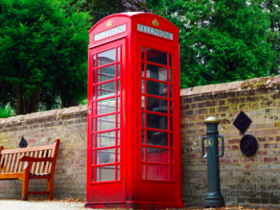During low cost trips in Europe, it is highly advisable for us to stay in affordable hostels. They provide inexpensive and fun way to stretch our travel fund. Hostelling is a long time habit for many backpackers in Europe and the preferred choice is to stay at smaller towns or even villages, to enjoy the local surrounding and culture. Just like their bigger brethrens, hostels are also supervised by their owners and they can offer inexpensive lodging for any traveller. Living areas can be shared. Hostels can actually be an ordinary house that has multiple spare rooms that can be rented. Owners often also stay inside the house and they could provide assistance when needed. This makes hostels a wonderful alternative for people who habitually stay in more expensive hotels. Children should have the opportunity to enjoy the countryside. Hostels also provide a way for children to better understand their overall surrounding. They are often equipped with standard amenities, such as shower and hot water. Although food may not be provided like in typical B&Bs, there are often affordable eating places nearby that allow us to enjoy local foods.
When staying at hostels, it is incredibly easy to make new friends. Many hostels have bunk beds with one room that can be shared with multiple people. Although, this may sacrifice their overall privacy, it can be quite exciting to be connected with people from all around the world. Hostels are not only for young people, but also for older travellers and retirees. However, there are still hostels that provide private rooms with private bath, instead of sharing the room. In many cases, dormitories are separated by gender, but they can also be mixed. This allows the whole family to stay inside a single room, so they are able to stretch their overall travel budget. Some hotels are specifically available for elderly and retirees. Elder hostels are available in many countries in Europe, where retirees can socialize and learn more about local culture. In tough economy, the overall travel budget can significantly reduced, so this could be helpful for retirees who want to keep sustainable expenses.
Prices will vary from season to season and place to place. Dormitory beds could be available from $15 and up to $25 per night. Private rooms could be available from $30 to $60. During peak season, reservation is generally recommended, but many hostels provide room for walk-in customers, due to their less informal and more flexible process. Hostels can still provide us with access to nearby beach, interesting destinations and other attractions. At night, when we are tired, we could go back to a house-like accommodation, with its comfortable, quiet, clean and safe surrounding. If this is what we prefer, then it is likely that hostelling is entirely for us. It is important to know that even with their less informal process, hostels in Europe should be licensed by the local authority. We should also know what the hostel will provide to us and we need to know what to expect.























